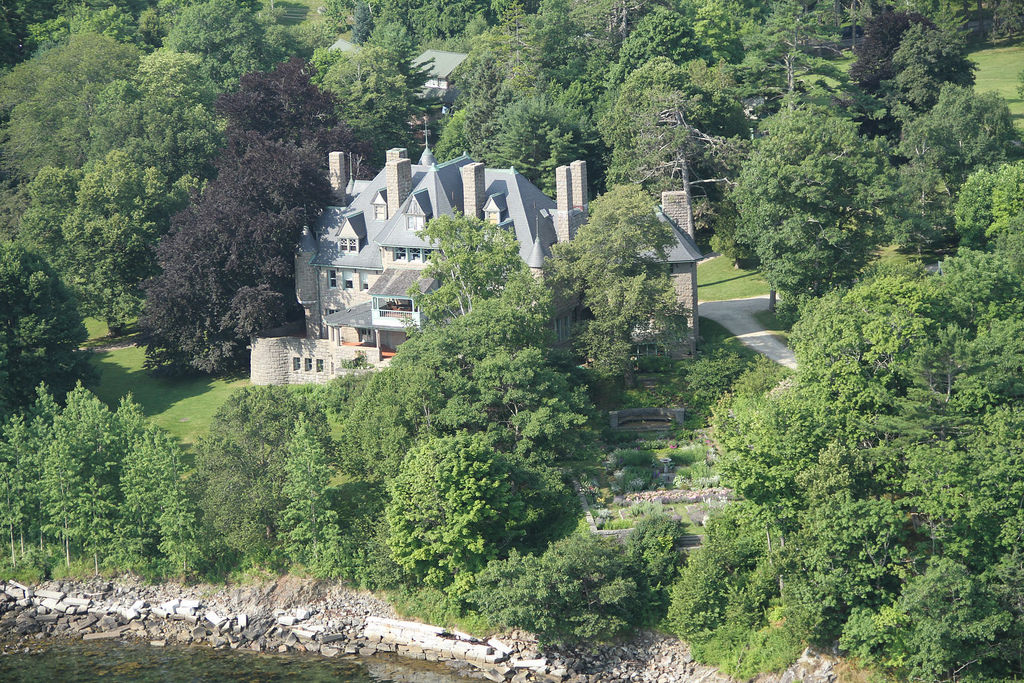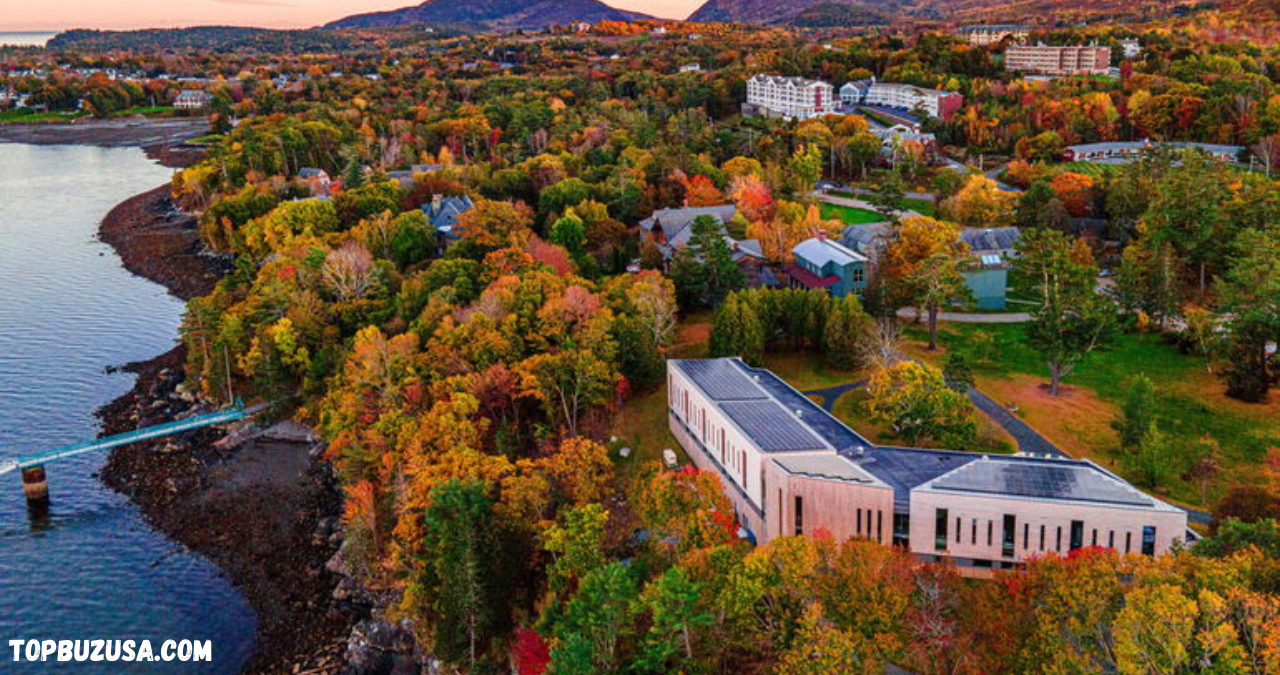Nestled on the scenic shores of Bar Harbor, Maine, the College of the Atlantic (COA) is not your average institution of higher learning. It’s an innovative, environmentally conscious college that has been pushing the boundaries of education since its College of the Atlantic. With its singular focus on the interdisciplinary study of Human Ecology, COA attracts students seeking a meaningful, personalized academic experience deeply rooted in real-world challenges and environmental stewardship.
In a world where higher education often follows rigid structures and compartmentalized disciplines, COA dares to be different. Here, students aren’t just learners—they’re thinkers, creators, and changemakers. By prioritizing experiential learning, sustainability, and community engagement, the College of the Atlantic prepares students to confront complex global issues with empathy and innovation.
Whether you’re an aspiring environmental scientist, social activist, artist, or entrepreneur, COA offers a nurturing space to grow intellectually while contributing to a better world. This article takes you through the heart of the college, from its unique academic model to its vibrant campus life and commitment to sustainability.
History and Founding Philosophy
Founded in 1969, College of the Atlantic emerged from a bold vision to transform higher education. Its founders aimed to create a learning environment that blended the humanities, sciences, and social sciences into a single, coherent discipline: Human Ecology. This integrative approach would allow students to explore the relationship between humans and their environments—natural, social, and built.
The idea behind Human Ecology wasn’t just academic; it was a call to action. At a time when environmental concerns were gaining prominence, COA positioned itself as a hub for ecological awareness and change. The college was designed to challenge traditional education models, encouraging students to break down barriers between disciplines and engage in problem-solving with real-world implications.
From its modest beginnings with just 32 students, COA has grown into a respected institution with a global impact. While it remains small in size, its influence in progressive education and environmental sustainability continues to expand. The founding philosophy of integrating learning with action remains the backbone of its curriculum and culture, making it a pioneer in holistic, purpose-driven education.
Academic Structure and Unique Curriculum
At College of the Atlantic, students don’t choose from a list of majors—they all major in Human Ecology. But this doesn’t mean the education is one-size-fits-all. On the contrary, students craft individualized study plans that blend academic interests and career goals, guided by dedicated faculty advisors. This freedom fosters intellectual curiosity and allows students to develop unique academic identities.
The curriculum is designed to break down traditional academic silos. A student interested in marine biology might also explore policy, writing, and indigenous studies to create a well-rounded understanding of ocean conservation. Another might combine art, agriculture, and economics to address food justice. The possibilities are as diverse as the students themselves.
Classes are small, discussion-based, and hands-on. Fieldwork, internships, and independent projects are deeply woven into the fabric of learning. Students don’t just study problems—they work on solving them. The result is a deeply immersive education that prepares graduates not just for jobs, but for lives of purpose and impact.
Campus Life and Community
Life at College of the Atlantic is defined by collaboration, community, and a shared commitment to sustainability. The campus, located on the rugged coast of Mount Desert Island, offers stunning views and close proximity to Acadia National Park. This natural setting becomes an extension of the classroom, with many courses integrating outdoor learning.
Despite its small size, COA boasts a vibrant and inclusive student community. With around 350 students from diverse backgrounds, the campus is a melting pot of cultures, ideas, and passions. Student-led clubs and organizations reflect this diversity, ranging from environmental activism to music and cultural appreciation.
The college fosters a strong sense of belonging. Everyone from faculty to staff to students plays a role in shaping campus life. Whether it’s through shared meals in the dining hall, sustainability initiatives, or community service projects, the COA experience is intensely communal and collaborative. This close-knit environment not only enhances learning but also builds lifelong friendships and networks.
Sustainability and Environmental Leadership

College of the Atlantic isn’t just talking about sustainability—it’s living it. As the first carbon-neutral college in the United States, COA has long been at the forefront of environmental action. Sustainability is more than a concept here; it’s a lifestyle embedded in every aspect of the institution.
From sourcing food locally and operating an organic farm, to heating buildings with renewable energy and divesting from fossil fuels, COA walks the talk. The school has received numerous accolades for its environmental practices and is consistently ranked among the greenest colleges in the country.
Students are active participants in these efforts. They lead renewable energy initiatives, conduct ecological research, and push for policy changes both on and off campus. The commitment to sustainability is not confined to a department or program—it’s a core value that permeates all learning and living experiences.
Conclusion
College of the Atlantic stands as a beacon of what higher education can be when it prioritizes purpose over prestige, collaboration over competition, and sustainability over status quo. Its model of Human Ecology education encourages students to think deeply, act boldly, and engage meaningfully with the world around them.
For those who crave a more engaged and personalized college experience—one that aligns with values of environmental and social justice—COA offers an unmatched opportunity. It’s more than a school; it’s a community of thinkers and doers committed to creating a better future, together.
Frequently Asked Questions (FAQs)
What is Human Ecology, and how is it taught at COA?
Human Ecology is the interdisciplinary study of the relationship between humans and their environments. At COA, it is taught through customized, student-led academic paths that blend science, art, and social inquiry.
Is College of the Atlantic accredited?
Yes, COA is fully accredited by the New England Commission of Higher Education (NECHE).
What kind of students thrive at COA?
Independent, curious, and socially-conscious students who are eager to shape their own education tend to thrive at COA.
How competitive is the admissions process?
While COA has a selective admissions process, it values fit and potential more than standardized test scores or class rankings.
What are housing and dining like at COA?
COA offers sustainable living options and locally sourced, organic meals. The campus encourages a community lifestyle, often involving shared responsibilities.
You May Also Read: https://topbuzusa.com/toyota-sports-car/





